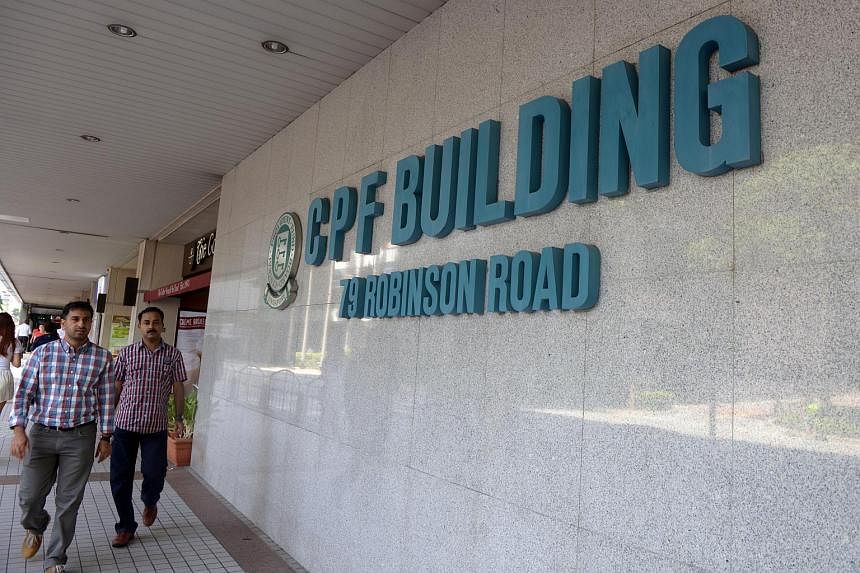The wide-ranging powers that a proposed law grants the Central Provident Fund (CPF) Board as administrator of a new, mandatory national health insurance have sparked mixed reactions.
Those against are uncomfortable with the Government wanting complete access to details of their income and health. Those for it are glad not to have to fill in forms and provide certified copies of their income and health status.
The MediShield Life Bill tabled in Parliament on Monday gives the CPF Board power to access income tax and health records of Singaporeans and permanent residents. MediShield Life is due to be launched at the end of this year.
The proposed law means that those who want to qualify for premium subsidies do not need to give their consent for the release of information, as consent is presumed.
Those who object can opt out, but they will not have access to subsidies. Should they change their minds at a later date, they can apply for subsidies by providing documentary proof of their financial status.
While some have criticised the measure as being draconian, it is, in fact, a highly practical solution to what would otherwise be a bureaucratic nightmare: identifying people who qualify for subsidies.
The Government has promised to subsidise the MediShield Life premiums of two-thirds of the population. The subsidies cover people from families where the per capita household income is $2,600 a month or lower.
Next comes the question of how to identify the people who qualify. Should everyone who might qualify be made to apply for the subsidies, giving details of their income and number of people in their household?
That would be tedious for the individuals and families, to say nothing of the massive bureaucracy needed to sift through and verify 21/2 million applications from people who would qualify for some subsidy.
Hence the decision to automate the process by getting information that is already available within the Government - such as CPF contributions by those who are employed, or tax returns for the self-employed.
The number of people in a household can also be worked out, as identity cards include a person's address.
However, while the Government has such information, it is not easily shared among ministries because of its confidential nature. That is why Parliament has to approve the release of the information to the administrator of MediShield Life - the CPF Board.
MPs like Dr Chia Shi-Lu are very happy with the move, as they have been getting complaints from people about the repeated declarations they have to make when applying for subsidies.
Clearly, the people supporting this move are the ones who need and expect to receive subsidies.
The ones who object are likely those with higher incomes who are less likely to receive any subsidies after four years. (Everyone gets transitional subsidies for the first four years.)
But the naysayers' feelings have been pre-empted, and people can refuse to give the CPF Board access to their information. In return, those who opt out forfeit the right to claim subsidies for themselves or their household members.
Giving the CPF Board access to income information makes it easy for those who require financial help to get it. It does not affect the well-to-do who may oppose such intrusion into their affairs.
The same applies to determining if someone has a pre-existing disease. Instead of sending all newcomers to MediShield to the doctor for a check-up - which comes at additional cost to the person - it is far easier to just check his medical records with hospitals to see if he is suffering from a major ailment.
The only ones affected by this are those currently excluded from MediShield for some pre-existing conditions. MediShield Life, being a universal insurance plan, may cover the condition if it is not too serious.
So, those who want their current illness to come under the MediShield Life umbrella have to consent to letting the CPF Board access their health information from hospitals.
If they don't want the Government poking its nose into their health status, they can also refuse permission. But they must then be prepared to pay a 30 per cent penalty on their premium to cover pre-existing conditions for the first 10 years.
As for fears over the security of information and confidentiality, the Bill has a penalty - a fine of up to $5,000 and a jail term of up to a year, or both - to deter leaks and ensure they do not take place with impunity. Only those authorised to look at the income and health records may do so, and they cannot use the information for any purpose other than MediShield Life.
There have also been some strong reactions against the penalties for people who default on premiums. They face a fine of up to $5,000 and jail term of up to one year if they try to flee the country without paying premiums.
I found the criticisms rather surprising. Why would anyone rush to the defence of those so anti-social as to refuse to pay the premium for a health insurance plan that benefits the old, the sick and the needy?
The penalty does not apply to people who have difficulty paying the premiums. That has been made very clear by the Ministry of Health.
It is there only for recalcitrants who have the money, but refuse to part with it. In the meantime, these free-riders continue to be covered by the insurance, which has promised to cover everyone, for life.
Despite the chatter on some social media sites, an objective look at the provisions in the MediShield Life Bill suggests that its provisions are eminently sensible. They empower the administrator of the insurance plan to access relevant information in allocating subsidies, and set stiff penalties for free-riders.


